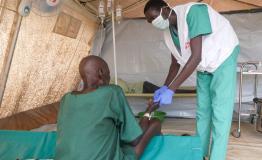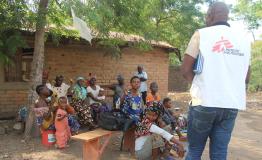

Cholera
The cause of cholera is the bacterium Vibrio cholerae, which infects the small intestine. How cholera affects the body is the bacterium causes the cells lining the intestine to produce large amounts of fluid. The result is diarrhoea and vomiting (cramps are also common), which can range from mild to severe. In severe cases, cholera can become fatal in a short period of time.
The infection spreads when a person consumes food or water containing the faeces or vomit of another person who has been infected with cholera. Contaminated food or water is common in overcrowded areas like slums or refugee camps.
Cholera outbreaks are common in areas where there is overcrowding and people don’t have access to proper sanitation or clean water. This means that cholera is often a serious risk following natural disasters and emergency situations, for example, the Haiti earthquake of 2010. However, it’s important to note that cholera can occur anywhere, especially during rainy seasons in impoverished areas where houses and latrines flood, leaving stagnant pools of contaminated water. Our water and sanitation engineers and logisticians play an important role in the prevention of cholera.
In many cases, MSF teams have been able to aid with the treatment of cholera and have managed to limit the death rate to less than one per cent. If you want to know more about our emergency response or to make a difference and support our emergency fund, donate today and play your part to help fight cholera.
About Cholera
Cholera is caused by an infection of the intestine with the bacterium Vibrio cholerae. The bacterium causes the cells lining the intestine to produce large amounts of fluid, leading to profuse diarrhoea and vomiting.
The infection spreads when someone ingests food or water contaminated with the faeces or vomit of someone carrying the disease. Contaminated food or water supplies can cause massive outbreaks in a short period of time, particularly in overcrowded areas such as slums or refugee camps.
Typically, symptoms of cholera appear within two to three days of infection. However, it can take anywhere from a few hours to five days or longer for symptoms to appear.
A cholera infection is often mild or without symptoms but can sometimes be severe, resulting in profuse watery diarrhoea, vomiting and leg cramps.
The patient rapidly loses body fluids, leading to dehydration and shock. Without treatment, they may die within hours.
Cholera can be diagnosed by examining stool samples or rectal swabs but, due to the fast-acting nature of the disease, there is often little time to do so.
In epidemic situations, a diagnosis is often made by taking a patient's history and conducting a brief examination, with treatment given before there is time for a laboratory to confirm the diagnosis.
Cholera can be treated simply and successfully by immediately replacing the fluids and salts lost through vomiting and diarrhoea – with prompt rehydration, less than one per cent of cholera patients die.
Cholera victims are always treated with oral rehydration solutions - prepackaged mixtures of sugars and salts that are mixed with water and drunk in large amounts. Severe cases will need these fluids to be replaced intravenously via a drip, and antibiotics are sometimes administered.

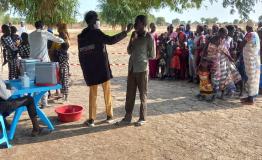
One year on: South Sudan’s protracted cholera crisis, a symptom of deeper failures
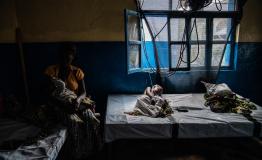
DRC: Cholera epidemic increasingly worrying across the country
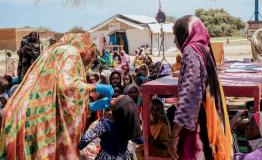
Preventing and treating: MSF committed to tackling cholera in Chad
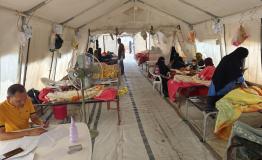
Yemen: Acute watery diarrhoea surge puts people at risk in Ibb and Al-Hodeidah
